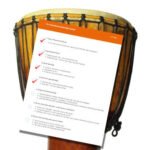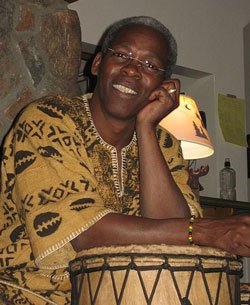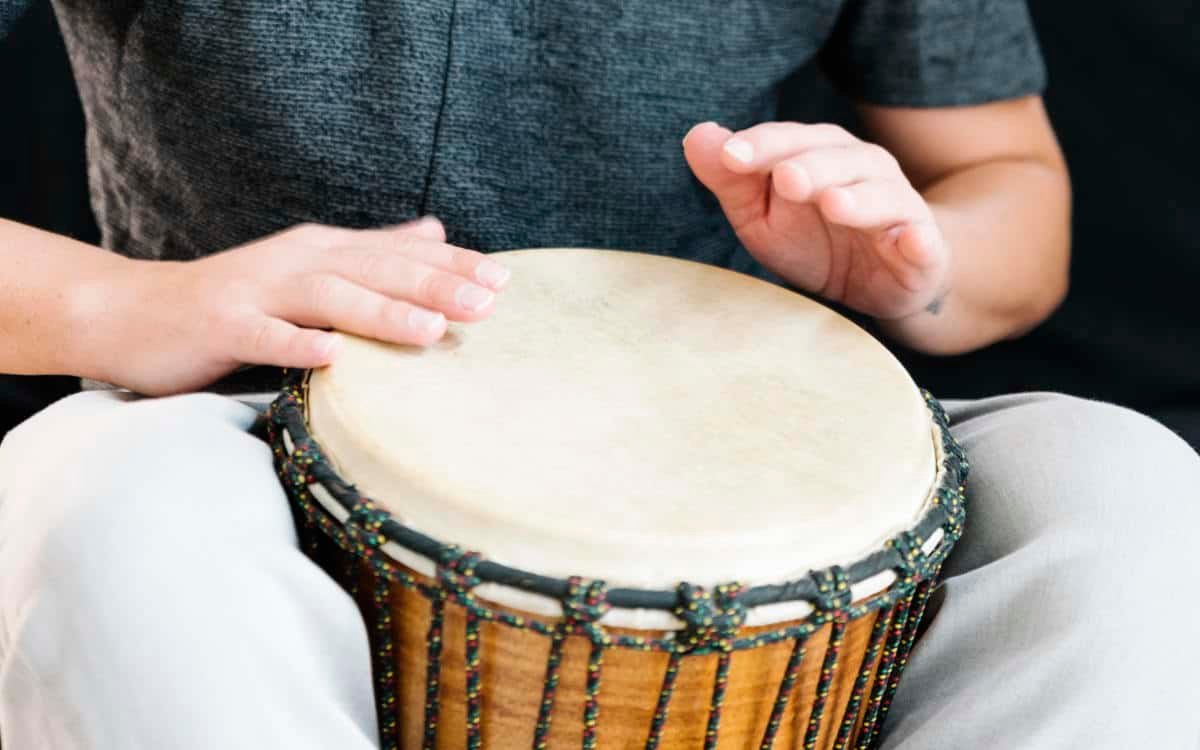
Kuku and the flam
Kuku is one of the most popular rhythms that can be played on a djembe. It is a traditional dance song from Guinea in West Africa.
This song is played by two djembes and consists of:
- An introduction ('the call'),
- The basic rhythm
- An ending (or 'call out').
1. The Call
The call we learnt in the 'Albongo' lesson is taken a step further to include the flam. If you're not sure what a flam is, have a look here. Here the flam is the very first note of the song.

2a. The Rhythm - Djembe 1
The pattern is only one bar long and repeats itself.

2b. The Rhythm - Djembe 2
The second djembe plays the following. The pattern is 2 bars long.

3. The Ending Call
Notice the flam on count 1 and the extra note at the end that finishes off the song.

That's it!
Now play the whole song, starting with both djembes playing the call, then one djembe plays rhythm 2a and one plays 2b (which you can play any number of times) and finally the Ending Call played by both djembes to finish the song.
That's Kuku!














Marvelous!!! Many thanks from Bolivia. Your lessons are very clear an useful. Best wishes for you
You’re welcome.
Thanks so much for these lessons. Very useful and I am learning more than I thought. I found answers to many of my questions on how to play, how to play with accompaniement, and read the djembe music ! Merci beaucoup !
You’re welcome!
Regards
Al
Donde puedo descargar todos los audios de las lecciones? Gracias!!
Translation: Where can I download all the audios of the lessons? Thank you!!
Hi, sorry but there is no audio yet. I will add video lessons soon!
Very much appreciated for your tutorials!! Many thanks from Sweden <3
You’re welcome, glad they helped.
Just wanted to tell you,” think” you. I learned this a couple of years ago and never really played the djembe, I’m starting to again, and found I remember everything you taught me, it was so easy.
You’re very welcome!